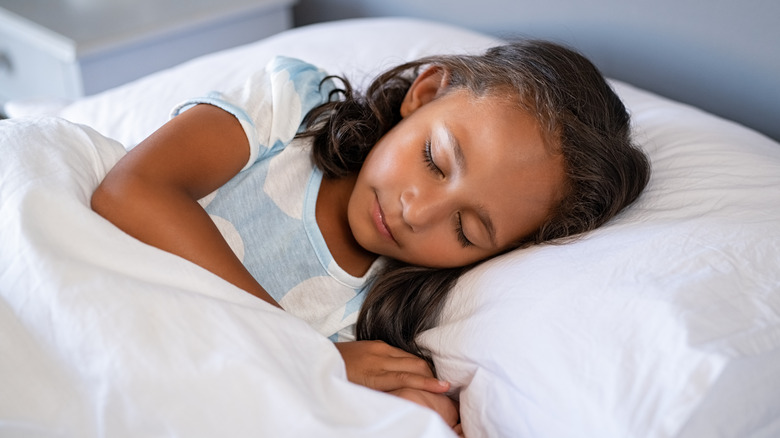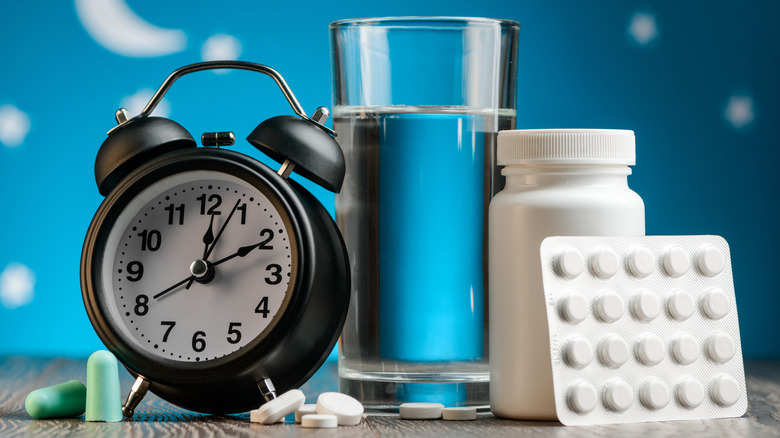Why You Might Want To Think Twice Before Giving Melatonin To Your Kids To Help Them Sleep
Use of the sleep-aid supplement melatonin for children has grown over the course of the last nine years, reports the American Academy of Sleep Medicine. While thought to be a more natural alternative to prescription sleep-aids, this doesn't mean supplements don't come without potential risks. "A lot of people don't view herbal supplements or vitamins as having any potential danger," pediatrician Dr. Gina Robinson tells the Cleveland Clinic. "Because things are natural or because things aren't prescription medications doesn't mean that there can't be some complications or dangers involved with using them."
Recently, the American Academy of Sleep Medicine issued a public health advisory warning caregivers about the potential risks of giving young children and adolescents melatonin as a sleep aid. The U.S. Centers for Disease Control and Prevention (CDC) cites that between 2012 and 2021, melatonin ingestion among those 19 years of age or younger increased by 530%, with a total of 260,435 cases of child melatonin ingestion called into poison control centers, some resulting in severe outcomes. Rates were observed to have climbed most significantly between 2019 and 2020, overlapping with the outbreak of the COVID-19 pandemic.
Signs of a melatonin overdose in children
During the study period, most child melatonin ingestion cases were seen in male children 5-years-old or younger, which occurred at home, and were unintentional, reports the CDC. Some cases required hospitalization, with five children in need of mechanical ventilation, as well as two deaths reported. While most children did not exhibit symptoms, of those who did, gastrointestinal, cardiovascular, and central nervous system-related symptoms were most commonly observed. The American Academy of Sleep Medicine also notes that irritability, headache, and dizziness are also potential signs of a melatonin overdose, as well as vomiting, diarrhea, tiredness, and abdominal discomfort, as per the Cleveland Clinic.
The American Academy of Sleep Medicine advises caregivers to consult with their child's pediatrician prior to giving their child melatonin supplements, according to the health advisory. If needed, a physician can help determine the appropriate amount and timing of the sleep-aid. Alternatively, health experts advise implementing changes in routine to help boost the child's quality of sleep. "Instead of turning to melatonin, parents should work on encouraging their children to develop good sleep habits, like setting a regular bedtime and wake time, having a bedtime routine, and limiting screen time as bedtime approaches," vice chair of the AASM Public Safety Committee Dr. M. Adeel Rishi tells the American Academy of Sleep Medicine.


